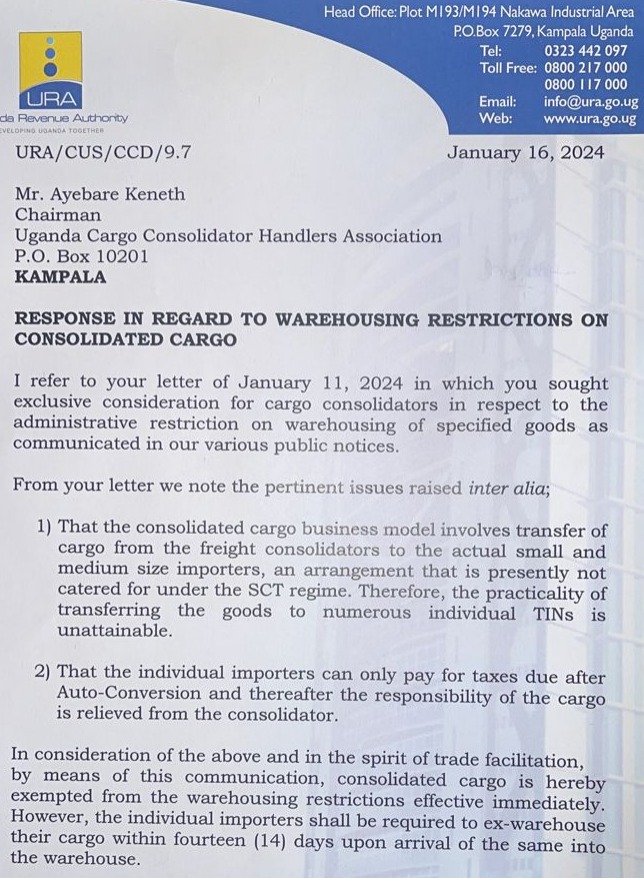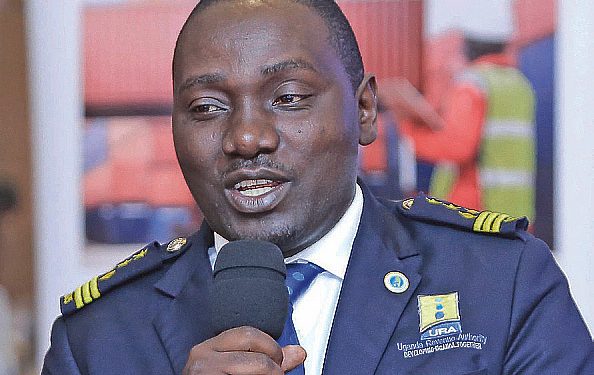The Uganda Revenue Authority (URA) is under fire for allowing only the consolidation of cargo into Uganda, leaving other goods stranded in Mombasa awaiting clearance.
The criticism stems from a recent directive mandating importers to settle taxes in Mombasa before their goods enter Uganda, perceived by traders as a strategy undermining their businesses.
Stakeholders, including importers, exporters, and logistics companies, have raised concerns about the adverse effects of URA’s decision, leading to financial losses, logistical challenges, and increased uncertainty for businesses dependent on timely cargo clearance.
In June of the previous year, URA issued a notice citing Regulation 64(k) of the East African Community Customs Management Regulations, 2010, indicating that certain goods would no longer be eligible for the Customs Warehousing Regime as of January 1, 2024. The affected products include Wheat Flour & Wheat Grain, Mobile Devices & Phones, Tiles, Marble & Granite, Lubricants, Automotive Batteries, Toiletries and Cosmetic Products, Pasta and Spaghetti, garments, and Flavors for Soft Drinks.
However, on January, URA Commissioner Customs Abel Kagumire approved the entry of consolidated cargo into warehouses. Traders faced losses as their goods remained stuck in Mombasa. Those not engaging in consolidated cargo perceived Kagumire’s approval as unfair to the majority of the business community.
Kagumire responded to a letter from Keneth Ayebare, Chairman of Cargo Consolidator Handlers Association, addressing concerns about warehousing restrictions on consolidated cargo. In the letter, Kagumire acknowledged the challenges in the current business model and exempted consolidated cargo from warehousing restrictions, effective immediately. However, individual importers are required to ex-warehouse their cargo within fourteen days upon arrival. Consolidators are also requested to submit details to URA by January 19, 2024. Kagumire expressed the authority’s commitment to providing seamless services to consolidators as key partners in revenue mobilization.






